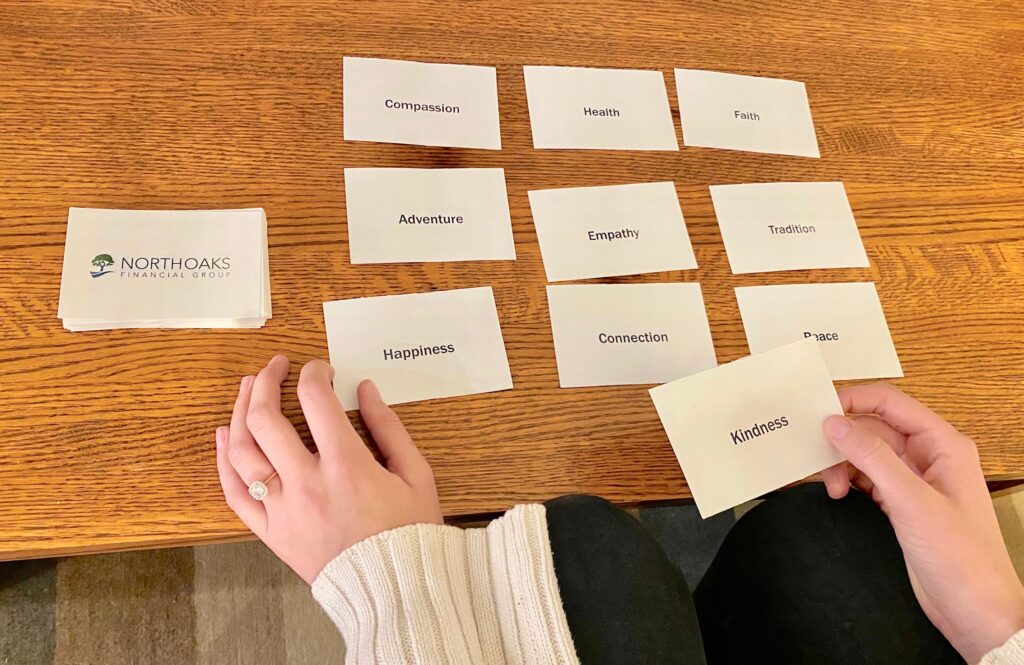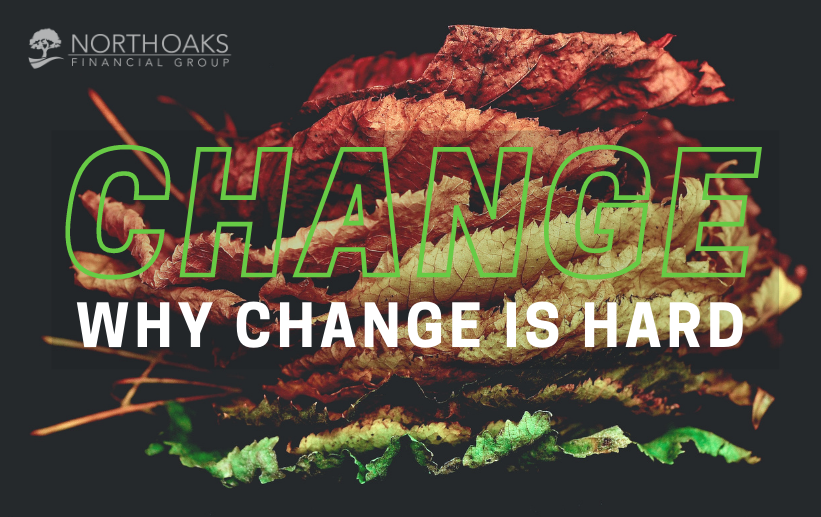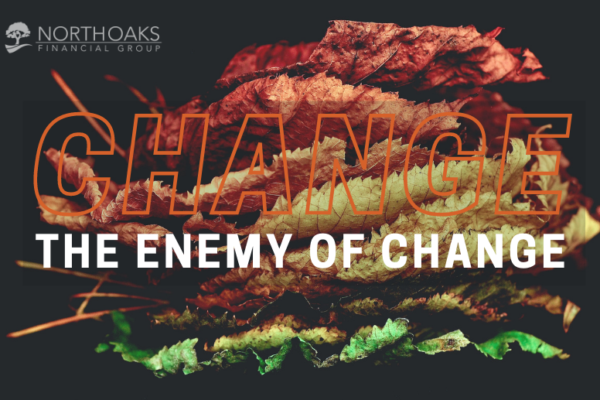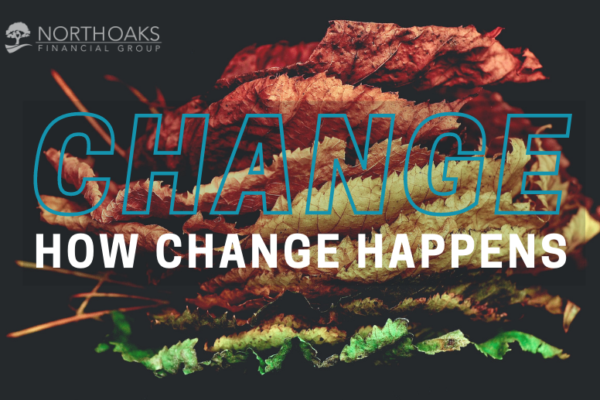This is the first article in a series on Change, which might seem like an unexpected topic for a financial advising firm to cover, but since most people worry about their money and our mission is to help them think beyond their money, change is an obstacle we help all our client’s face.
If you could live your life over again, what would you do differently?
This is a question Richard Leider asked older adults for his book The Power of Purpose, and the three themes he heard in response have shaped the way we understand financial planning as a holistic process and inspired our mission to help people think beyond their money. (The three themes are listed near the end of this article, so keep reading!)
The education our advisors completed to become certified in Behavioral Financial Advice helped us understand that people are always doing three things: thinking, feeling and doing. We are more aware of what we are thinking than what we are feeling; yet we feel things before we think about them, and this can have a negative impact on our decisions and actions.
Change is hard, for all of us.
To help you understand why change is so difficult, we have to look inside your brain.

When you feel threatened, alert messages are sent to your brain’s emotional and rational centers. The message sent to your emotional center gets there in 12 milliseconds, while it takes 40 milliseconds for the message to get to your rational center. This may not seem like a big difference, but a fraction of a second is long enough for the emotional center to highjack how your brain functions.
Immediately after receiving the warning, your emotional center tells your liver to begin pumping a stress hormone called cortisol through your body. Cortisol is a clotting agent that can save you from bleeding to death if the perceived threat results in a serious injury, but it also restricts blood flow to the part of your brain where you analyze and make decisions.
The primary objective of your brain’s operating system is to keep you alive, which is why you are hard-wired to be emotional; your brain does not want you to evaluate your options in a life-or-death situation (instead, it decides for you: fight, flight or freeze).
Reacting instantly can be life-saving if you are facing a dangerous situation where every second matters, but what if you are facing an opportunity to try something new that is safe and would result in making a positive change in your life?!
The last region of your brain we will look at that is related to change is the habit center, which forms neural pathways for your habits and routines, allowing you to do commonly repeated things without conscious thought so your brain can conserve energy (“brain power”) for bigger problems.
Your brain assumes anything new is dangerous because it would require you to break the previously constructed neural connections in your habit center and re-build new ones. The word neurologists use to describe the process of breaking neural pathways is “painful,” which might explain why you feel such a strong resistance to change…even when the change would be good for you.
Change is not only hard, it is also painful.
Which brings us back to Richard Leider’s question from the beginning of this article; when older adults were asked to look back on their lives and consider what they would do differently if they could do it all again, they said they would be more reflective, be more courageous and clarify their purpose earlier.
If you want to think clearly when faced with opportunities to try new things and make positive changes in your life, you need to know who you are and what you want, otherwise your brain will do what it is wired to do: survive.

We guide our financial planning clients through an exercise to discover their essential values because we believe having a clear understanding of what is most important to you is necessary if you want to stay in alignment with your values when your brain gets scared and attempts to steer you to “safety.”
The Smart Money Program™, Holistic Financial Planning and Life Alignment™ processes we offer are designed to help you overcome your resistance to positive change by embracing what is most important to you (your values), clarifying what your life is about (your purpose) and considering the impact you want to have on others and the world (your legacy).
Read the next article: How Change Happens






